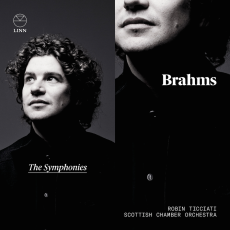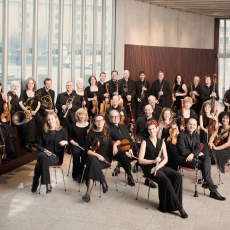Robin Ticciati & SCO - Brahms: The Symphonies - The Guardian
I wouldn’t usually recommend listening to all four Brahms symphonies back to back: too much of a good thing – and, in too many conductors’ interpretations, too much that sounds the same. In the case of this new cycle from Robin Ticciati and the Scottish Chamber Orchestra, however, I’d say gorge away.
There is nothing here that sounds like bog-standard Brahms, nothing that hasn’t been meticulously thought through, barely a bar that doesn’t say something. If that sounds exhausting to listen to, it’s not; Ticciati’s care for keeping the music airborne, coupled with the lucent transparency of the playing, mean that the longest movements fly by. It equals and perhaps even exceeds the benchmark Brahms cycle the SCO recorded with Charles Mackerras, 20 years ago.
This isn’t a period performance, yet it nods to authenticity in the use of small-bore trombones and 19th-century horns, and the way in which the violins season their melodies with subtle but noticeable slides. The orchestra is smaller than we have become used to for Brahms, but less is most definitely more – there are only fleeting moments when one is aware of any thinness.
What stands out is the sheer range of sound and colour Ticciati has at his disposal – something he uses to ensure that each symphony has its own distinct sound world. In the 1876 Symphony No 1, for example, the orchestra’s sound ranges from a haunting, straight tone that gives an almost medieval air to the opening of the finale, right up to an unbridled lusciousness when the big tune takes hold.
The playing is unfailingly vivid. The slow movement of No 3 features some ravishing duetting from the SCO’s oboe and bassoon; the dramatic moments in the ensuing finale come at you like a fist. It’s in No 2 that the leanness of the forces makes the most revealing difference, letting us hear interweaving threads with rewarding clarity. Ticciati leaves the SCO this summer after nine years as principal conductor. This release captures the strength of their connection and preserves it at its peak.


